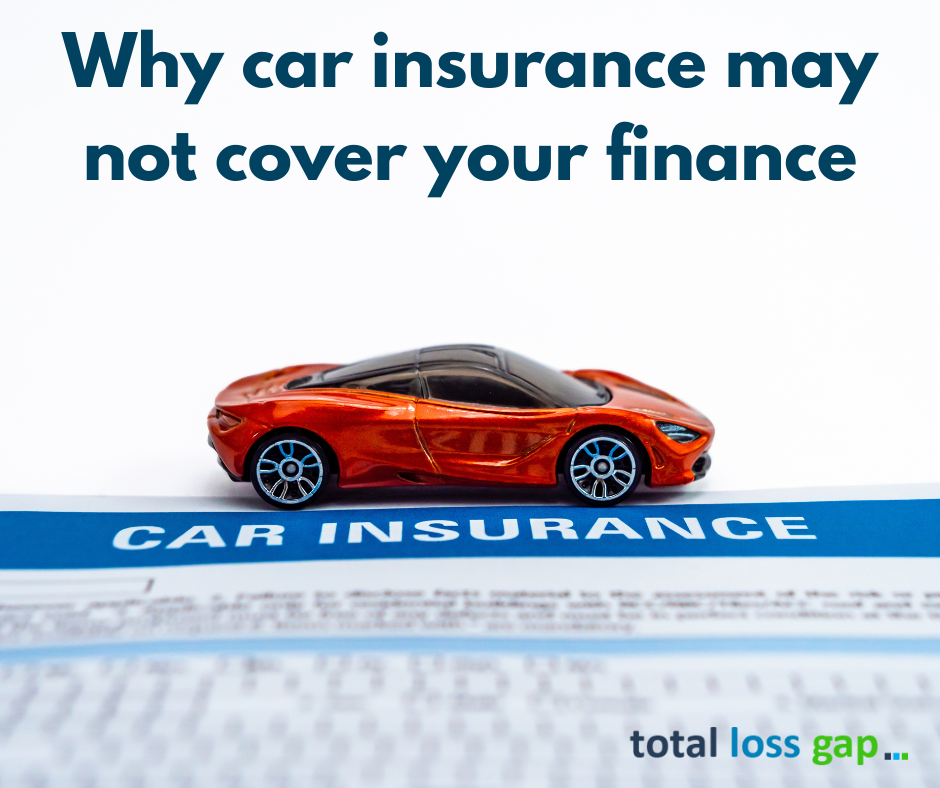Customer Service Lines Open Mon-Fri 9am-6pm



[ Contact Us ]
Need Help? Calling from a mobile please call 0151 647 7556
0800 195 4926Do you have a question? or need help?
Customer Service Lines Open Mon-Fri 9am-6pm, Closed Saturday & Sunday
You've just had your car declared a total loss (aka a 'write off'). Maybe it was stolen. Perhaps it was in a crash.
Either way, you've had the bad news from your insurer, but the payout doesn't even clear your finance. 
You still owe money on a car that no longer exists.
It's a horrible feeling, but it's not uncommon.
How can this happen?
Car insurance may only cover the market value of your car at the time it was written off.
That's what it would have been worth to buy at that time, not what you paid initially, and not necessarily what you still owe on finance.
Here's a typical example:
You now have no car and still owe £3,000 to the finance company.
Two things are going on here.
First, cars lose value. Depreciation on new vehicles can drop 15 to 20 per cent in value the moment they're registered, partly because VAT is non-refundable for private individuals.
Over the first year, many cars can lose 30 per cent or more.
Second, most finance deals, especially PCP, are front-loaded with interest.
That means your balance doesn't go down as quickly as you might expect, even though you're making regular payments.
If you put down a small deposit or are still in the early stages of your agreement, it's easy to owe more than the car is worth.
That's known as negative equity.
Yes. There are a couple of things to consider. 
The first is taking out a GAP Insurance policy to cover the risk. The risk is not having enough from your car insurer to cover your finance settlement. This is exactly what GAP Insurance is designed for.
GAP stands for Guaranteed Asset Protection. It can cover the gap between what your insurer pays and what you still owe, or what you originally paid, depending on the type of policy.
Here's what a GAP policy could do for you:
It's a one-time cost for fixed-term cover, typically lasting 2 to 5 years.
GAP Insurance can provide a real safety net when the unexpected happens. No one plans to have a car written off or stolen, do they?
The second action you can take is to put in a larger deposit for the finance agreement. This lowers the amount you borrow and may lessen the chance that you end up owing more than the car is worth.
The issue with this is that you have to commit to investing the extra money. That may not suit your circumstances.
Also, it does not mean you can no longer benefit from GAP Insurance cover. Yes, you may have less chance of being in negative equity. However, if you take GAP cover back to the price you first paid (Return to Invoice GAP), you can protect that extra deposit you have put down.
Even if you can sort out the finances on the car that has just been written off, you still have to replace it. By recovering some deposit or equity from a GAP Insurance claim, you can put this towards the replacement vehicle.
You may also like: GAP Insurance and PCP Finance
If your car gets written off, your insurer won't clear your finance for you. That's not their job. They'll pay what the car is worth at the time. The rest is up to you.
If you struggle to cover the shortfall, which can range from a few hundred to a few thousand pounds, GAP Insurance is worth considering. It's not about protecting your car, it's about protecting your finances from a very real risk.
[Get a quick GAP Insurance quote today →]
Written by Mark Griffiths, founding Director of Aequitas Automotive Ltd, the company behind Total Loss GAP. Published 17/7/25